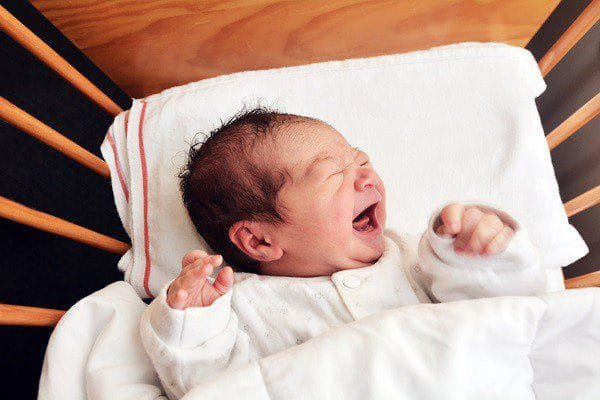1. Crying and Making Noise
When a child is uncomfortable, they will not cry. But if a child likes to cry after waking up, parents will be very worried. In fact, the behavior of the child also includes the psychological aspect of the child, when the child has just left the mother’s womb and has not adapted to the environment, does not have a sense of security.
When the baby wakes up and sees that there is no one around, the baby will cry and call the parents. Facing this phenomenon, parents can first comfort the child’s emotions, while observing whether the baby sleeps well, has dreams, or feels uncomfortable.

Usually, if we adults don’t sleep well, we will feel irritable when we wake up. The child will be the same as us. Some children sleep soundly, and if they are suddenly awakened, they will cry and vent their feelings. The child may also communicate with the parents by crying when feeling uncomfortable, or it may be the child’s physiological reaction.
If parents notice that the child always likes to cry after waking up, they can check if the child is hungry or uncomfortable. If these situations do not occur, it means that the child does not feel safe and does not adapt to the environment. At this time, parents cannot immediately pick up the child but can gently pat the child to stabilize their emotions.
When the child suddenly wakes up, they may fall back to sleep after a while, regardless of the stage the child is in, parents should spend more time with the child. This way, the child will rarely cry and will not easily become anxious.
If parents accompany their child more, they can save the child from crying without a clear reason. If the child always cries, it will have negative effects on the body. It will affect the normal development of the child and also reduce the child’s resistance, making them prone to illness.
2. Quieter Children
Some children will not cry after waking up but will look around and remain silent. Such a child does not need parents to comfort them but can wait for the parents to come. Some newborns will not cry after waking up and they will observe whether the surrounding environment is safe or not. When these children grow up, they will be very independent.
If these children are in an unfamiliar environment, they can quickly adapt to the environment and will not cry, let alone ask others for comfort. These children have a particularly strong psychological resilience, even when facing any difficulties. They can solve it themselves, and some parents do not believe that their children will have this ability.

Parents always think that their child is too young to handle things on their own, but in fact, parents are underestimating their child. If parents see their child wake up without crying, and the child can lie there playing or observing the surrounding environment, parents should not immediately pick up the child. At this time, the child’s brain may be receiving information, and the child may be exploring something.
This time is very important, the child’s brain can be developed, and parents can wait for the child. If the child’s mood is unstable, you can pick up the child again.
What parents worry most is when the child wakes up, when the child wakes up and cries, parents will think that there is something wrong with the child. At this time, parents should find out the reason why the child is crying.





































